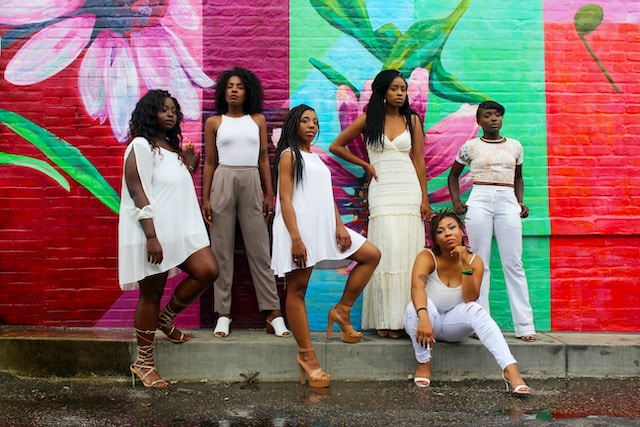
Mental Health America recognizes July as BIPOC Mental Health Month. This year, the theme is culture, community, and connection. This theme reflects the importance of belonging, inclusion, and relationships to individual and collective mental health. It acknowledges generational trauma and systemic racism in contributing to mental health challenges.
What Is Mental Health America?
Mental Health America (MHA) is a nonprofit organization dedicated to promoting mental health, preventing mental illnesses, and improving the overall well-being of individuals with mental health concerns. It is the United States’ oldest and largest community-based mental health advocacy organization.
MHA works towards achieving its mission through various programs, initiatives, and advocacy efforts. They provide education and resources on mental health conditions, treatment options, and recovery. MHA also advocates for policy and legislative changes to improve access to mental health services and eliminate stigma surrounding mental illnesses.
The organization conducts research, raises public awareness, and works to ensure that individuals with mental health conditions have access to quality care and support. MHA also plays a crucial role in promoting mental health at the community level, collaborating with local organizations and individuals to address mental health needs and create supportive environments.

What is BIPOC Mental Health Month?
BIPOC Mental Health Month, also known as Bebe Moore Campbell National Minority Mental Health Awareness Month, was established in June 2008 to raise awareness about the unique mental health struggles faced by underrepresented groups in the United States. It is named after Bebe Moore Campbell, a renowned American author, journalist, teacher, and mental health advocate.
Mental Health America (MHA) continues the visionary work of Bebe Moore Campbell by developing resources annually to address and support the mental health needs of Black, Indigenous, and People of Color (BIPOC) communities. Through her powerful storytelling, which explored themes of racism, mental health, and family, Bebe Moore Campbell left a lasting impact and laid the foundation for ongoing efforts to support the mental health of BIPOC individuals.
Who Was Bebe Moore Campbell?
We want to recognize that there’s some controversy around calling this month BIPOC Mental Health Month instead of specifically honoring Campbell. More info here.
Bebe Moore Campbell, born on February 18, 1950, and passing away on November 27, 2006, was an influential American author, journalist, teacher, and mental health advocate. She dedicated her career to shedding light on the mental health needs of underrepresented communities, particularly the Black community.
Campbell was born as Elizabeth Bebe Moore in Philadelphia, Pennsylvania. She graduated from the University of Pittsburgh and later obtained a master’s degree in elementary education from the University of Pennsylvania. She began her professional life as a teacher and later transitioned into journalism, working as a freelance writer and contributing articles to various publications.
Campbell gained prominence as an author, known for her powerful storytelling and exploration of themes such as racism, mental health, and family dynamics. Some of her notable works include the novels “Your Blues Ain’t Like Mine” (1992) and “Brothers and Sisters” (1994). She also co-authored a nonfiction book titled “Successful Women, Angry Men: Backlash in the Two-Career Marriage” (1986).
In addition to her literary achievements, Campbell was a passionate advocate for mental health. Inspired by her personal experiences with mental illness within her family, she worked tirelessly to raise awareness about mental health issues, especially within minority communities. Campbell’s advocacy efforts aimed to address the unique challenges and disparities faced by marginalized groups in accessing mental health care.
2023 Theme: Culture, Community, And Connection
The 2023 BIPOC Mental Health Campaign, aligned with Bebe Moore Campbell National Minority Mental Health Awareness Month, focuses on the theme of Culture, Community, & Connection. This theme recognizes the profound impact of our surroundings on our mental health and overall well-being. Specifically, it acknowledges the historical trauma and displacement experienced by Black, Indigenous, and people of color (BIPOC) populations and highlights the resilience and prosperity of these communities in the face of oppression and systemic racism.
Community Support and Resilience
BIPOC communities have often had to rely on themselves and each other to survive the ongoing challenges of systemic racism. Despite attempts to erase their worth and value through genocide, displacement, and loss of culture and language, these communities have remained powerful, unyielding, and revolutionary. The mental health narrative surrounding BIPOC communities has traditionally focused on disparities, trauma, and oppression, but there is potential for change. Imagine a narrative that uplifts community-created systems of support as foundational pillars, providing safety and connection.
Centrality of Community and Connection
Throughout history, BIPOC communities have developed systems of support rooted in cultural traditions, language, stories, food, and art. Community serves as an anchor, enabling connection and countering attempts to ostracize and isolate. It is through the power of community that movements, social change, health, wellness, knowledge, and strength have emerged. BIPOC communities nurture their cultures by preserving ancestral wisdom, survival practices, and support systems that sustain and promote thriving in hostile environments.
Connection as Healing and Transformation
Seeking help not only facilitates individual healing but also contributes to the healing of communities. Connection becomes the remedy for the illnesses of trauma and displacement. It allows us to be seen and to see others, to support and be supported. Through connection, we challenge each other to grow and persevere, reinforcing the collective spirit of BIPOC communities.
If you or someone you know is struggling or in crisis, help is available. Call or text 988 or chat 988lifeline.org. You can also reach Crisis Text Line by texting MHA to 741741. If you are seeking therapy, use our therapist directory to find the therapist who is the right fit for you. See our Statement of Solidarity.




